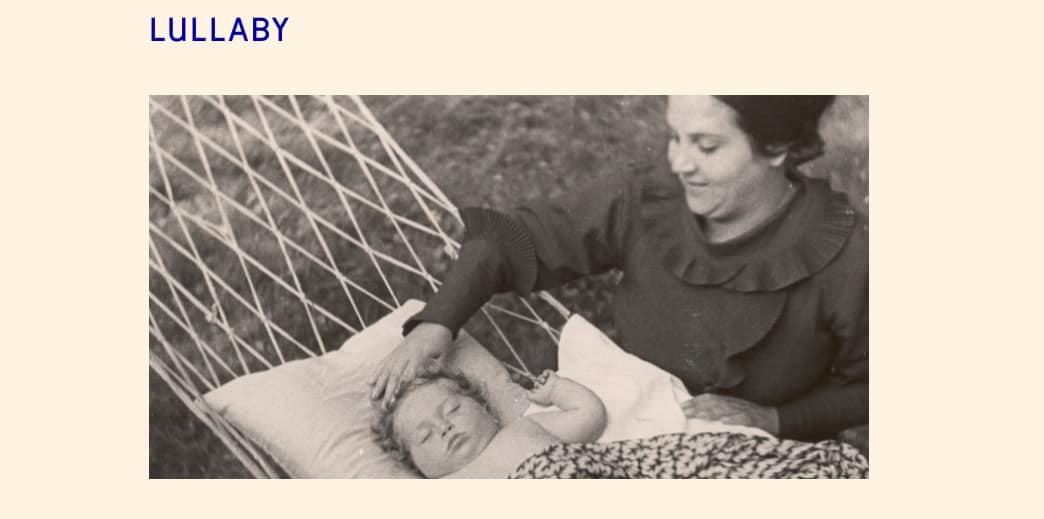When you ask Sergei Lozitsa to name one if his topmost influential films, you can be assured that “Lullaby” is on that list.
“Lullaby” is a 58-minute black and white Soviet from the late 1930s that was almost immediately banned, played at the Metrograph Theater on July 27. The director, Dziga Vertov – a forerunner eastern-European documentarian and newsreel director, created a film that is far nearer to a montage of cinema verite, than a cohesive narrative movie.

Cover art for “Lullaby”
When you think of “Lullaby” think of the age of communist propaganda when leaders of countries needed to unite their nation in solidarity and strength. Displaying of images of state pride, social unity, military and political capacity became the primary objective. It was the repetition of these standards that gave them their lasting great effect.

Still from “Lullaby”
The film was exactly that. As it incessantly cut back and forth between images of infants sleeping, mothers nursing, children playing, silent shots of Joseph Stalin speaking publicly, and the glorification of private life in the Soviet Union, one is almost mesmerized by the continuous barrage of confidence and optimism epitomized therein.
For the score: a mother’s voice singing a (as the title alludes) lullaby. Repeated several times throughout the film, this dreamy, sentimental, hypnotic voice transports the audience back to a time of juvenile virtue to a time when life was lived without contention; those times when a person was entirely dependent on their mother; those times when they glorified her – just as the citizens represented in this film do towards their motherland.
The event was presented by IDFA: International Documentary Filmfestival Amsterdam.
